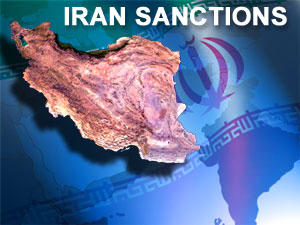Iran to impose restrictions on some U.S. entities

By Kamila Aliyeva
Iran will impose sanctions on U.S. individuals and entities
which support and help the Daesh terrorist group (the Islamic
State, ISIS aka ISIL), Iran’s foreign ministry spokesman Bahram
Qasemi said.
He made the remarks at a press conference in Tehran on February 6
while commenting about the recent sanctions imposed by U.S. against
the Islamic Republic over its missile program, Trend reported.
Iran is preparing a list of U.S. entities to sanction and will announce them soon, Qasemi said.
He further added that the Islamic Republic’s missile program is about Iran and its people, and doesn't concern others.
Qasemi stated that Iran does not care about U.S. threats, noting
that Iran’s recent missile tests are not meant to test the new U.S.
administration.
“We do our job based on the scheduled plan,” he said, adding that
there is no need to test the U.S. President Donald Trump as Iran
has a clear understanding of the counter side.
Iran test-fired a medium-range ballistic missile, capable of
carrying a 500-kilogram payload with a range of 300 kilometers on
January 29, according to U.S. officials.
Iran has confirmed the test without revealing any details.
In a statement on February 3, the U.S. Treasury Department published a list of 13 individuals and 12 entities facing new restrictions. The entities include companies based in Tehran, United Arab Emirates, Lebanon and China.
The U.S. has imposed new sanctions on Iran as President Trump shows to have been infuriated by Tehran’s missile program after warning the Islamic Republic that it is “playing with fire.”
The United States insisted that the Iranian test violated UNSC Resolution 2231 which compels Iran not to undertake any activity related to ballistic missiles.
Iran's Defense Minister Hossein Dehghan noted that Tehran “will not allow foreigners to interfere” in the country’s defense matters and insisted that “the test did not violate the nuclear deal or UN Resolution 2231.”
Despite the fact that the U.S. is committed to lifting sanctions over nuclear program against Iran, the country retains other sanctions against Tehran. Some of these penalties are over Iran's human rights policies and its support for terrorism.
These sanctions bar American citizens and companies from most forms of investment or trade with Iran.
Iranian authorities claim that it violates the essence of the agreement on the nuclear program, while Washington disagrees with that.
The negotiations on the Iranian nuclear issue began in 2004, as Western nations were accusing Tehran of developing a "secret military nuclear program. Since 2006, negotiations with Iran were led by the "six" of international mediators (the five permanent UN Security Council members and Germany). A number of resolutions were adopted requiring Iran to stop enriching uranium with nuclear proliferation purposes. These resolutions were progressively accompanied by restrictive measures to persuade Iran to comply. In 2006-2010 the United Nations, the United States, and the European Union implemented several packages of sanctions against Iran.
Lengthy negotiations resulted in the adoption of the Joint Comprehensive Plan of Action (JCPOA), the fulfillment of which could completely remove previously lifted economic and financial sanctions imposed by the UN Security Council, the United States, and the European Union. The long-anticipated deal was achieved in Vienna on July 14, 2015, that committed Iran not to produce weapons-grade plutonium for 15 years, to keep no more than 300 kg of enriched uranium to 3.67 percent, and to convert nuclear facilities and use them exclusively for peaceful purposes.
In December, Washington prolonged the Iran Sanctions Act (ISA) by the United States that passed in 1996 and was set to expire on December 31, 2016.
The Bill on the extension of sanctions came into force without President Barack Obama's signature. Although Obama refused to sign it, he expressed no veto claims. Thus, the Bill became law as it had been passed by both chambers of the U.S. Congress by an overwhelming majority.
---
Follow us on Twitter @AzerNewsAz
Here we are to serve you with news right now. It does not cost much, but worth your attention.
Choose to support open, independent, quality journalism and subscribe on a monthly basis.
By subscribing to our online newspaper, you can have full digital access to all news, analysis, and much more.
You can also follow AzerNEWS on Twitter @AzerNewsAz or Facebook @AzerNewsNewspaper
Thank you!
